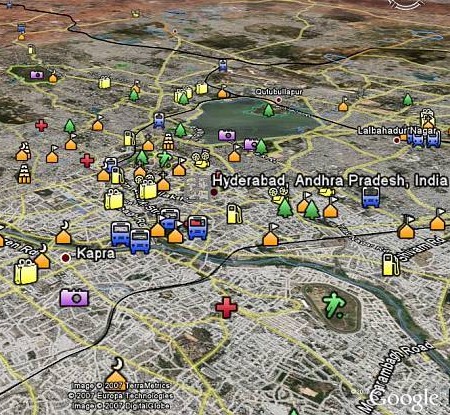Google uses crowdsourcing to map India
If each of the billion Indians is given a GPS receiver and explained how to use it, then we will get the world's largest army of cartographers. In a matter of days, they are able to create a complete database of all geographical objects in their country.
About the same way pondered the company Google, which conducted a fifty Indian cities a unique experiment . Residents of cities received free GPS devices and the task to note the coordinates of all significant objects, by which they pass in the city. If information came from several sources, the object was plotted on a map. So, in a short time, quite detailed maps of cities were drawn up, indicating transport stops, attractions, restaurants, municipal facilities and other buildings ( Hyderabad on Google Maps , one of the cities that took part in the experiment).

By the way, in a similar way, a map of cities in the UK is compiled as part of the OpenStreetMap project .
')
Everything leads to the fact that in the future, GPS devices on our body will be able to automatically download information into such a database in real time. Perhaps the first Google mobile phone will also support this feature.
About the same way pondered the company Google, which conducted a fifty Indian cities a unique experiment . Residents of cities received free GPS devices and the task to note the coordinates of all significant objects, by which they pass in the city. If information came from several sources, the object was plotted on a map. So, in a short time, quite detailed maps of cities were drawn up, indicating transport stops, attractions, restaurants, municipal facilities and other buildings ( Hyderabad on Google Maps , one of the cities that took part in the experiment).

By the way, in a similar way, a map of cities in the UK is compiled as part of the OpenStreetMap project .
')
Everything leads to the fact that in the future, GPS devices on our body will be able to automatically download information into such a database in real time. Perhaps the first Google mobile phone will also support this feature.
Source: https://habr.com/ru/post/12832/
All Articles